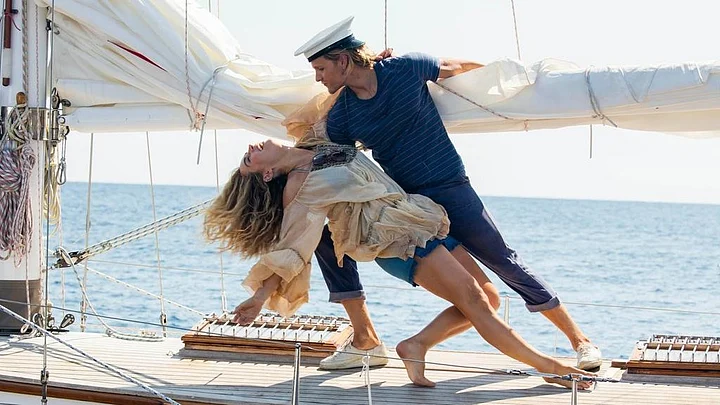Did we really need a sequel to Mamma Mia!? If you put your chin-up snobbery away, the answer would be a convivial yes.
First, you get a film once again to sing along with, a film that strips you of your intellectual self-control, and forces you into giving in to a spongy cupcake of a plot. How does it feel to give in? Try this.
Second, and most importantly, Mamma Mia! was also a film that treated women and LGBTQ folks to frothy passions, something most of the movie business tends to ignore. If dude-bros could have their endless fill of superheroes and gun-toting action, why can’t women have their own pleasures?
Mamma Mia! powered by Meryl Streep’s charming presence became a surprising blockbuster because it spoke to the lilting joys of a huge mass hitherto unaddressed. The sequel upon us does the same - it makes you sing and jive. So Mamma Mia! Here We Go Again is a welcome addition to the flock of franchises.
What does the sequel do? Well cerebrally, it fails very easily. The film like its predecessor is an excuse to hammer another collection of ABBA tunes together, with a knowing wink at the viewer that all will be forgiven since you’ve come in not to find blots in the plot, but to doff another hat to the band’s enduring sugar rush of songs.
The film begins with Sophie (Amanda Seyfried) in mourning after her mother Donna’s (Meryl Streep) offscreen death. She has renovated her mother’s hotel on the Greek island and is about to have a grand opening. She is also nursing a potential heartbreak courtesy Sky (Dominic Cooper). Like the original’s barely credible plot, this one too thrives on flaky conflicts: Will she reunite with Sky? Will her fathers arrive for the party? Can the party withstand the forthcoming storm?
Director Ol Parker (writer of the The Best Exotic Marigold Hotel series) employs the structure of The Godfather: Part II. It’s a sequel that actually goes into the past to move the story forward. If the present deals with the grand opening of the hotel, the flashbacks take us back in time to meet Donna’s younger self and the journey that brought her to this island.
Lily James playing the young Donna never tries to imitate Streep, rather she plays the veteran’s sweep with a feather touch, keeping rightly in mind the song covers her emoting has to adhere to. Graduating from Oxford, she begins with a rendition of ‘When I Kissed the Teacher’ during her valedictory speech with the younger versions of Christine Baranski’s Tanya (Jessica Keenan Wynn), and Julie Walters’ Rosie (Alexa Davies) before starting her ceaseless adventure throughout Europe where she meets younger versions of Colin Firth’s Harry (Hugh Skinner), Stellan Skarsgård’s Bill (Josh Dylan), and Pierce Brosnan’s Sam (Jeremy Irvine).
Since the first film exhausted the greatest hits of the pop group, the sequel mostly has the B-side tracks to embellish its narrative, besides the obvious reprises. The rest is just wealthy white people on an Instagram island singing and dancing to prove the appeal of ABBA, a band that travelled from contempt to reverence with unwrinkled harmonies.
Mamma Mia! Here We Go Again wears its self-awareness proudly and the jukebox narrative reserves its trump card for the finale. When pop diva Cher arrives in a helicopter (quite rightfully) as Sophie’s grandmother Ruby and belts out ‘Fernando’ in raspy sensuality, inviting Andy Garcia in a musical duel, the screen appropriately lights up with a thousand fireworks.
This is the kind of film in which nothing really works, yet it draws you in regardless of your vehement resistance. If moviegoing is about having a good time, beware of this ridiculous fluff. Before you know it, you’re singing ― gay and happy.
(The writer is a journalist, a screenwriter, and a content developer who believes in the insanity of words, in print or otherwise. He tweets @RanjibMazumder.)
(At The Quint, we question everything. Play an active role in shaping our journalism by becoming a member today.)
